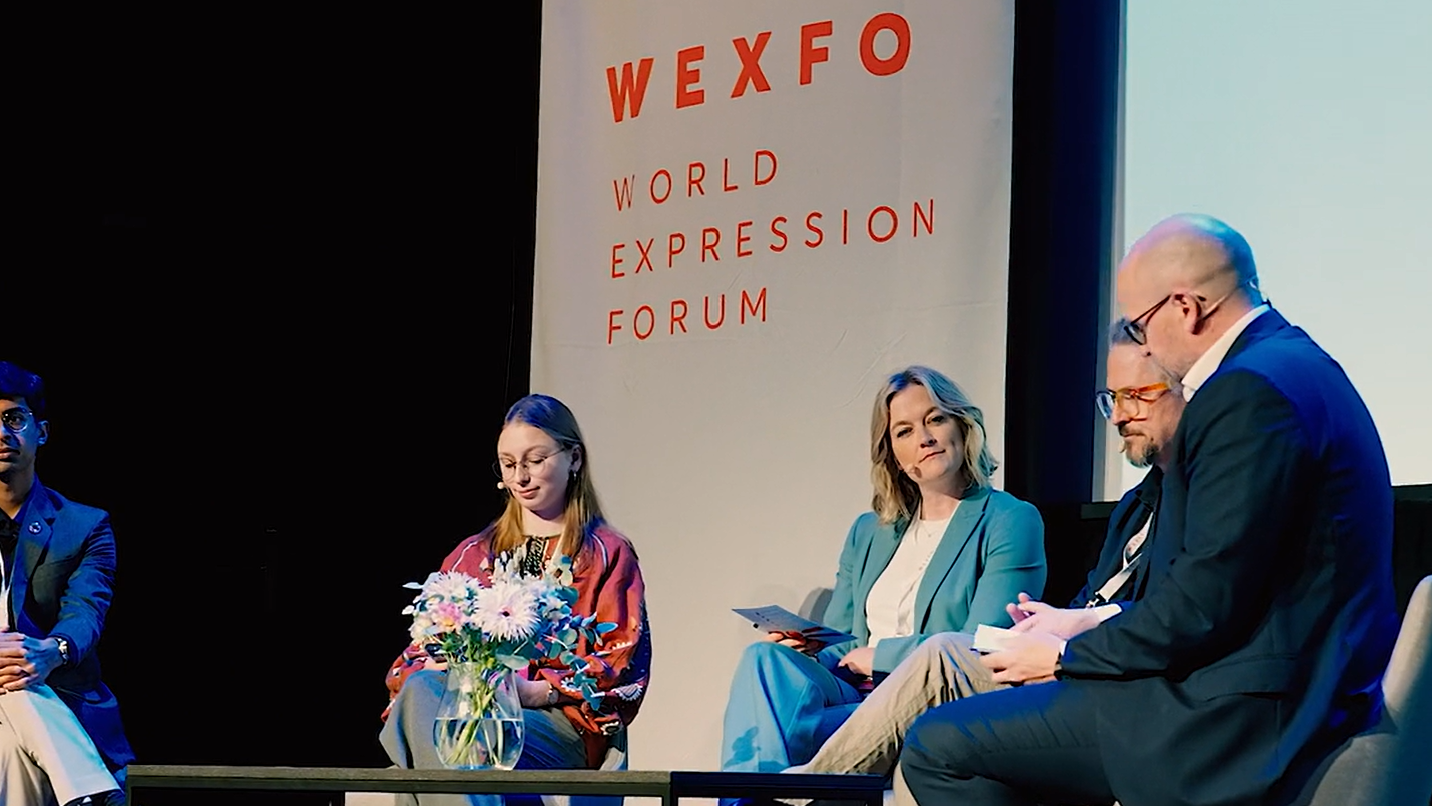
Adele Matheson Mestad, Director of the Norwegian Human Rights Institution, was one of the contributors to an important discussion at WEXFO 2024: Is AI a threat or a tool for freedom of expression?
In December last year, the Norwegian Human Rights Institution, together with the Norwegian Board of Technology, released a report on generative artificial intelligence and freedom of expression (available only in Norwegian).
In an interview with WEXFO in connection with the panel discussion at our conference in May, Matheson Mestad shared some insightful reflections on the regulation of AI technology:
The law is actually very slow; that is one of its distinctive features. Another is that it often relates to national borders, which is the most common scenario.
Here, on the other hand, we are dealing with a lightning-fast, exponential development that advances faster than regulatory measures, leaving us chasing after it.
It cannot be restricted to national borders, so we are completely dependent on international cooperation. This, in turn, makes regulating it even slower.
This worries me a little. I have yet to meet anyone who says, “I feel that I have a pretty good overview.”
Some might understand pieces of the legal side, others may be familiar with pieces of the technology. But then there is this huge black box in that technology, where no one has the necessary understanding to know what that technology actually does.
That is a scary image, and in my opinion, this does not have any historical parallels. We are in a situation with such difficulties in getting an overview, that we don’t know how to ensure that it is our democracy that shapes the technology, and not the other way around.
Adele Matheson Mestad is part of the committee working on developing the program for WEXFO 2025.

